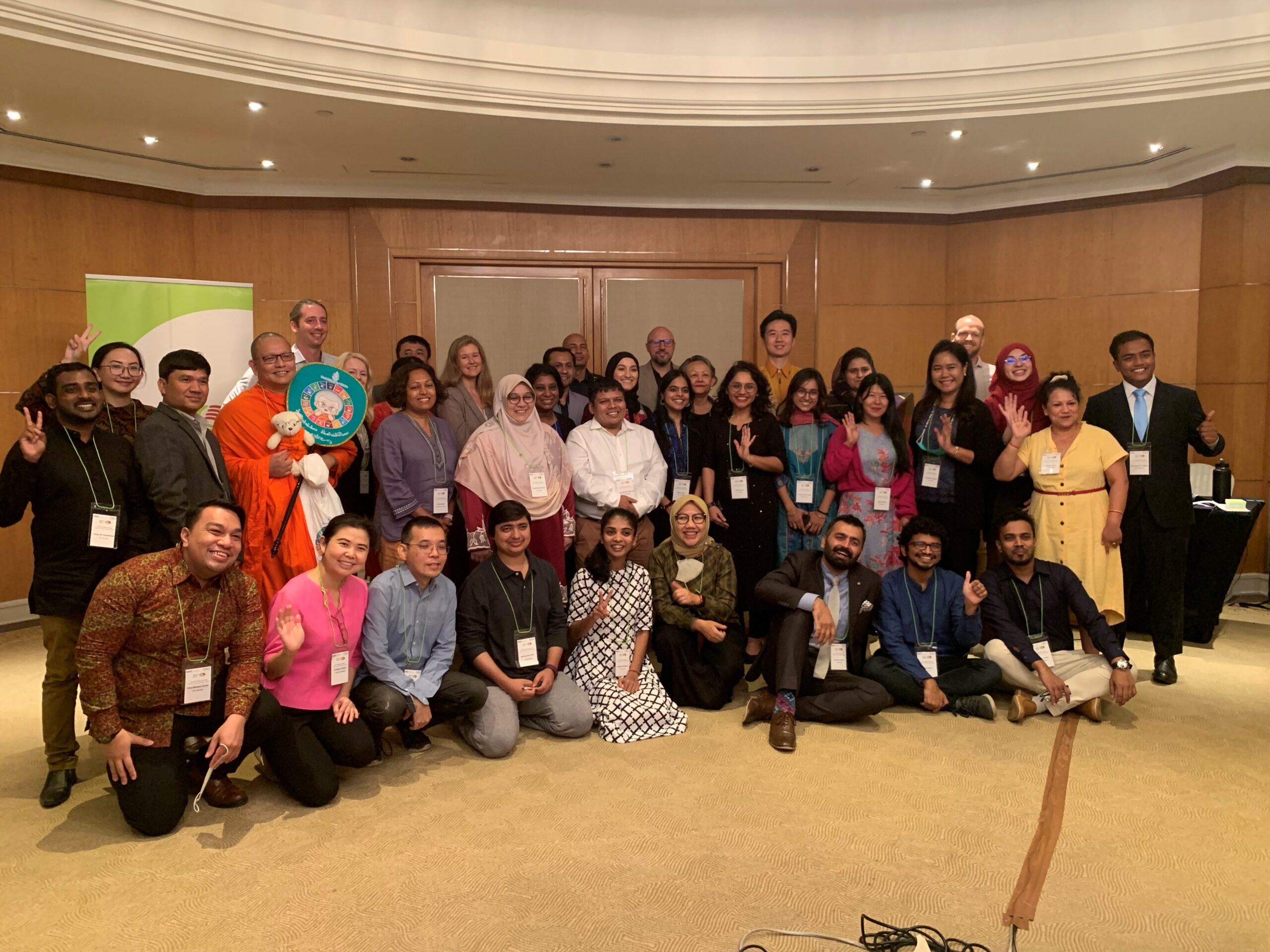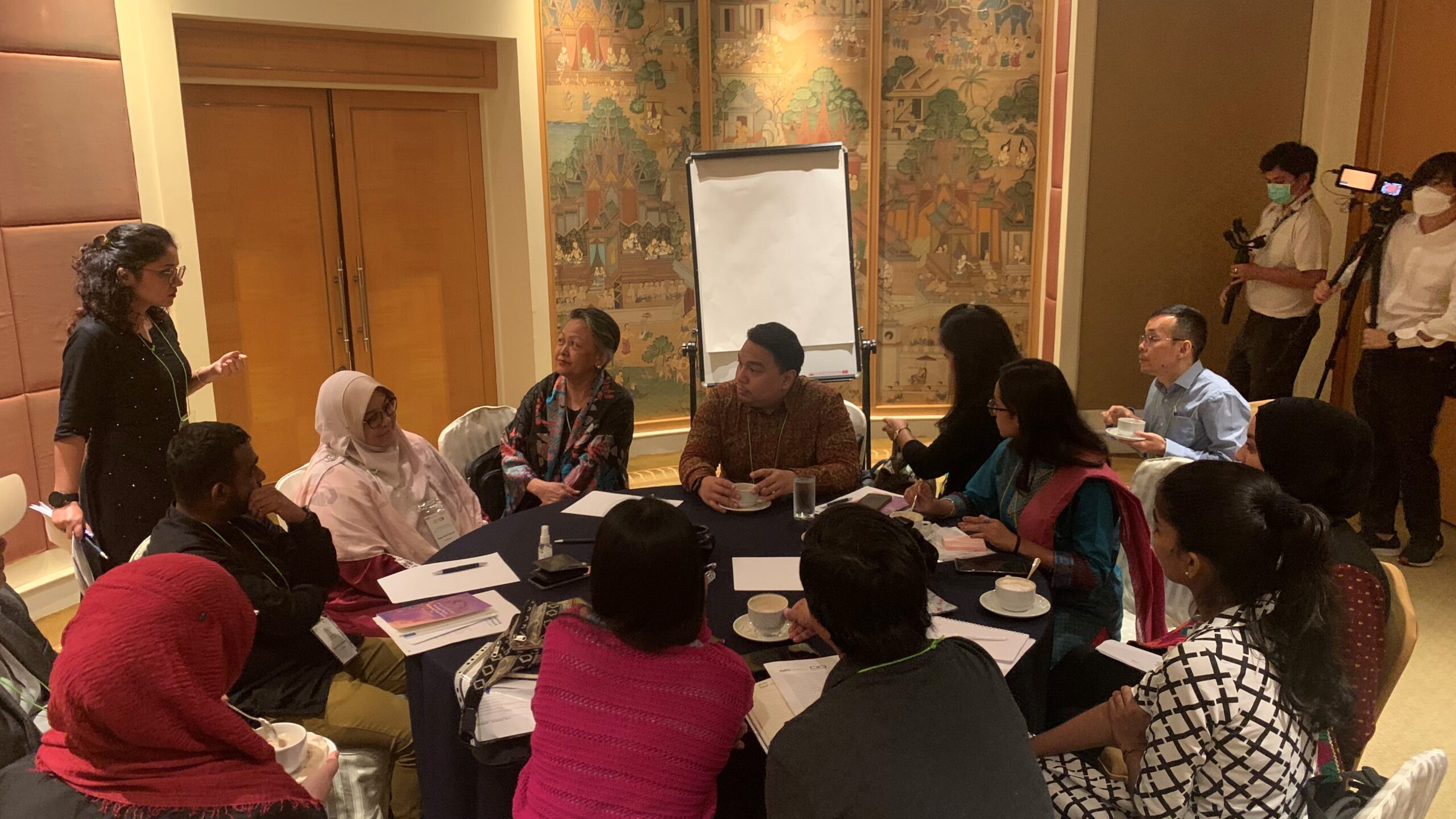Women, Youth and Religious Leaders Advance Collaboration for Advocacy Efforts in South Asia
October 2022
The Network for Religious and Traditional Peacemakers (NETW), the KAICIID Dialogue Centre, and the International Partnership on Religion and Sustainable Development (PaRD) convened 50 women, youth, and religious community leaders from South and Southeast Asia in Bangkok to identify key policy suggestions and to strengthen these organizations in their abilities to inform policymakers and public opinion on matters like the climate emergency, the Covid-19 pandemic, and the role new technologies in peace and social cohesion. The outcomes of this initiative will be shared with relevant policymakers in a variety of formats, inform overall policy advocacy, and will be formulated into policy papers.
Mike Waltner, Senior Regional Programme Manager, KAICIID, and Johanna Hakulinen, Regional Programme Manager Network for Religious and Traditional Peacemakers offered welcoming remarks to the event, emphasizing that multi-stakeholder collaboration between women, youth, faith leaders, and policymakers is a critical component to achieve the Sustainable Development Goals, especially SDGs 16 and 17 on peace and partnership for the goals. Conference participants were delighted to welcome the Ambassador of Finland to Thailand, H.E. Jyri Järviaho, as well as representatives from UN agencies to the event.
In building upon their experience and expertise, participants identified potential recommendations related to thematic focus areas of the G20 Interfaith Forum and G20 Forum, including COVID-19, climate and technology, and peace. All these areas have created short- and long-term impacts, with a disproportionate effect on women and youth. Therefore, including a gendered and generational lens in all the thematic focus areas was highlighted as critical to resolving issues and bolstering social cohesion.
Misinformation, including that propagated by religious leaders, has created disruptions at all levels of society, with very little accountability and coordination between government actors and technology companies. The pandemic exacerbated existing crises and widened societal divisions.
Participants emphasized that policymakers and civil society need not only to empower women, youth, and religious leaders but create space for these groups to meaningfully participate and lead is critical to mitigating the consequences and preventing further implications. They emphasized that good governance is the cornerstone of all working crisis response and preparedness. The policy should be sustainable and sensible, listening to the needs expressed in communities. That also includes economic/livelihood policy decisions, to decrease inequalities, create access to quality jobs, encourage entrepreneurship, and crease economic opportunities for the most marginalized and vulnerable. Politics and policymaking need to be adaptive in these times of Omni crisis.

As a result of the COVID-19 pandemic, and increase accessed to digital technology, social and political discourses have move to unmoderated online spaces, often leading to hate-speech and incitement to violence. But practitioners must also revaluate mechanisms and best practices in digital spaces to effectively reach, engage and communicate with impact to its desired stakeholders – including decision makers. Therefore, e-advocacy is a critical mechanism for peacebuilders to advocate a message to a mass audience while facilitating audience engagement around the topic. In using the challenges and opportunities identified in the brainstorming sessions, participants utilized the Peacemakers Network’s E-Advocacy training to identify potential stakeholders, target audience and key messaging to disseminate the policy recommendations.
Participants expressed the two-day workshop allowed for critical discussions on the experiences and challenges of peacemakers as well as how to advocate for change, create awareness campaigns, and effectively reach policy makers. The workshop will support the continuing work of participants and organizers in an ever-shrinking civic space through collaboration and partnerships building between participants, adding to the sustainability element. Participants stated in this final section of the conference how important relationships of trust were for them and that events like this one create many of those.

